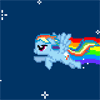An American's "Thankyou" to Canada
Moderator: Community Team
18 posts
• Page 1 of 1
An American's "Thankyou" to Canada
One American's View - David Meadows is a retired US Navy Captain
and the author of numerous books and articles on military subjects.
This message was on the U.S. Military.Com website. You will find it quite
positive. It appears that Mr. Meadows knows one helluva lot more about
what our military is doing than most Canadians. I trust this message
will assist to improve their knowledge.
David Meadows ~ April 27, 2006
On April 22, 2006 four Canadian soldiers were killed in
Afghanistan by a roadside bomb. Respects and heartfelt sadness go to
the families of those heroes who stand alongside the U.S. In the Long War
half a world away. While we focus on the war in Iraq, the fighting
continues in Afghanistan where side-by-side the U.S. And one of its
most loyal allies, Canada, engage the re-emergence of the Taliban.
Canada is like a close uncle who constantly argues, badgers, and
complains about what you are doing, but when help is truly needed, you
can't keep him away: he's right there alongside you. We have a unique
relationship with Canada. We have different political positions on
many issues, but our unique friendship has weathered world wars, global
crises, and the ever-so-often neighborhood disagreement.
Canada has been with us since the beginning of the Global War on
Terrorism. In February 2006, without fanfare Canada, leading a
multinational force combating growing Taliban insurgency, increased
troop strength in Afghanistan to 2,300. With the American military
stretched thin against rising instability in both Iraq and
Afghanistan, an ally that increases its troop strength is inspiring and
deserves
our respect.
Katrina was another example of our close family-like
relationship.
Katrina struck the Gulf Coast on August 29, 2005. Two days later, the
Vancouver Urban Search and Rescue Team rushed from British Columbia,
Canada to Saint Bernard Parish, Louisiana. In this Parish of 68,000
Americans, the first responders were Canadians. Overall, within the
devastated Gulf Coast area, it appears Canada was the first responder
outside of local efforts. They worked 18-hour days, going door-to-door
alongside Louisiana State Troopers, rescuing 119-Americans.
While FEMA ramped up to surge into the catastrophe; while the
administration and Louisiana fought for the politically correct way to
respond; Canadian aid was already at work.
The Canadian Forces Joint Task Group 306 consisting of the
warships HMCS Athabaskan, HMCS Toronto, NSMC Ville de Quebec, and CCGC
William Alexander sailed to the Gulf Coast to deliver humanitarian
supplies. They stayed, working alongside U.S. Navy and Mexican
warships, to provide aid to Katrina victims.
Katrina was not an anomaly of our close relationship. When
Hurricane Ivan devastated Pensacola, Florida in October 2004 Canadian
humanitarian help was there also. Canadian power trucks roamed the
streets and countryside helping restore electricity where Americans
had a unique experience of running into workmen who only spoke French.
Canada took a lot of undeserved flak for failing to leap into
Operation Iraqi Freedom when our administration sent us galloping
across the desert. But Canada remains one of our staunchest allies in the
war.
When United States military forces were fighting up the highways in
Operation Iraqi Freedom, Canada quietly increased troop numbers in
Afghanistan and continued Naval operations with U.S. Warships in the
Persian Gulf.
I was at the Pentagon on 9/11, stationed on the Joint Staff.
During the early hours after the attack, the United States closed its
air space and ordered every aircraft within our borders to land
immediately at the nearest airfield. Canada immediately stood up an
Operations Support Post. With civil aviation grounded, aircraft
destined for the United States were forced elsewhere. Most landed in
Canada.
Re-routed travelers and flight crews were hosted at Canadian Forces
facilities in Goose Bay, Gander, and Stephenville, Newfoundland;
Halifax, Shearwater, and Aldershot, Nova Scotia; Winnipeg, Manitoba;
and, Yellowknife, Northwest Territories.
Canada rapidly mobilized its forces. Within hours, the Canadian
Navy was on alert with ships preparing to cast off immediately for any
U.S. Port to help victims of the 9/11 attacks. Canada's Disaster
Assistance Response Team prepared to deploy from Trenton, Ontario.
Canada dispersed CF-18 fighter aircraft to strategic locations
throughout Canada. No politics. No negotiating. No questions. They
were just there. Canada would have fought any adversary that approached the
United States that day.
Canada has been such an integral partner with the United States
in the Global War on Terrorism that on December 7, 2004 when President
Bush awarded the Presidential Unit Citation to Commander Joint Force South
for combat success in Afghanistan, he was also recognizing the
secretive Canadian Joint Task Force 2 commando counter-terrorism unit.
The U.S. Department of Defense has awarded 30 Bronze Star medals
for heroism in combat to Canadian Forces personnel. Some of those 30
died in action. Many of the others were wounded. These Canadians
earned this American medal for heroism fighting alongside Americans. When we
recall our own dead heroes, we must remember that these warriors gave
their lives not only for Canada, but also for the United States.
Canada is more than a neighbor. It is a close family member with
the gumption to disagree with its brother to the south but always be
there when disaster strikes and America needs help. For that, I salute
you, Canada, and extend my respect for the sacrifices given by members
of the Canadian Forces.
and the author of numerous books and articles on military subjects.
This message was on the U.S. Military.Com website. You will find it quite
positive. It appears that Mr. Meadows knows one helluva lot more about
what our military is doing than most Canadians. I trust this message
will assist to improve their knowledge.
David Meadows ~ April 27, 2006
On April 22, 2006 four Canadian soldiers were killed in
Afghanistan by a roadside bomb. Respects and heartfelt sadness go to
the families of those heroes who stand alongside the U.S. In the Long War
half a world away. While we focus on the war in Iraq, the fighting
continues in Afghanistan where side-by-side the U.S. And one of its
most loyal allies, Canada, engage the re-emergence of the Taliban.
Canada is like a close uncle who constantly argues, badgers, and
complains about what you are doing, but when help is truly needed, you
can't keep him away: he's right there alongside you. We have a unique
relationship with Canada. We have different political positions on
many issues, but our unique friendship has weathered world wars, global
crises, and the ever-so-often neighborhood disagreement.
Canada has been with us since the beginning of the Global War on
Terrorism. In February 2006, without fanfare Canada, leading a
multinational force combating growing Taliban insurgency, increased
troop strength in Afghanistan to 2,300. With the American military
stretched thin against rising instability in both Iraq and
Afghanistan, an ally that increases its troop strength is inspiring and
deserves
our respect.
Katrina was another example of our close family-like
relationship.
Katrina struck the Gulf Coast on August 29, 2005. Two days later, the
Vancouver Urban Search and Rescue Team rushed from British Columbia,
Canada to Saint Bernard Parish, Louisiana. In this Parish of 68,000
Americans, the first responders were Canadians. Overall, within the
devastated Gulf Coast area, it appears Canada was the first responder
outside of local efforts. They worked 18-hour days, going door-to-door
alongside Louisiana State Troopers, rescuing 119-Americans.
While FEMA ramped up to surge into the catastrophe; while the
administration and Louisiana fought for the politically correct way to
respond; Canadian aid was already at work.
The Canadian Forces Joint Task Group 306 consisting of the
warships HMCS Athabaskan, HMCS Toronto, NSMC Ville de Quebec, and CCGC
William Alexander sailed to the Gulf Coast to deliver humanitarian
supplies. They stayed, working alongside U.S. Navy and Mexican
warships, to provide aid to Katrina victims.
Katrina was not an anomaly of our close relationship. When
Hurricane Ivan devastated Pensacola, Florida in October 2004 Canadian
humanitarian help was there also. Canadian power trucks roamed the
streets and countryside helping restore electricity where Americans
had a unique experience of running into workmen who only spoke French.
Canada took a lot of undeserved flak for failing to leap into
Operation Iraqi Freedom when our administration sent us galloping
across the desert. But Canada remains one of our staunchest allies in the
war.
When United States military forces were fighting up the highways in
Operation Iraqi Freedom, Canada quietly increased troop numbers in
Afghanistan and continued Naval operations with U.S. Warships in the
Persian Gulf.
I was at the Pentagon on 9/11, stationed on the Joint Staff.
During the early hours after the attack, the United States closed its
air space and ordered every aircraft within our borders to land
immediately at the nearest airfield. Canada immediately stood up an
Operations Support Post. With civil aviation grounded, aircraft
destined for the United States were forced elsewhere. Most landed in
Canada.
Re-routed travelers and flight crews were hosted at Canadian Forces
facilities in Goose Bay, Gander, and Stephenville, Newfoundland;
Halifax, Shearwater, and Aldershot, Nova Scotia; Winnipeg, Manitoba;
and, Yellowknife, Northwest Territories.
Canada rapidly mobilized its forces. Within hours, the Canadian
Navy was on alert with ships preparing to cast off immediately for any
U.S. Port to help victims of the 9/11 attacks. Canada's Disaster
Assistance Response Team prepared to deploy from Trenton, Ontario.
Canada dispersed CF-18 fighter aircraft to strategic locations
throughout Canada. No politics. No negotiating. No questions. They
were just there. Canada would have fought any adversary that approached the
United States that day.
Canada has been such an integral partner with the United States
in the Global War on Terrorism that on December 7, 2004 when President
Bush awarded the Presidential Unit Citation to Commander Joint Force South
for combat success in Afghanistan, he was also recognizing the
secretive Canadian Joint Task Force 2 commando counter-terrorism unit.
The U.S. Department of Defense has awarded 30 Bronze Star medals
for heroism in combat to Canadian Forces personnel. Some of those 30
died in action. Many of the others were wounded. These Canadians
earned this American medal for heroism fighting alongside Americans. When we
recall our own dead heroes, we must remember that these warriors gave
their lives not only for Canada, but also for the United States.
Canada is more than a neighbor. It is a close family member with
the gumption to disagree with its brother to the south but always be
there when disaster strikes and America needs help. For that, I salute
you, Canada, and extend my respect for the sacrifices given by members
of the Canadian Forces.
Gatekeeper, and Proud Member of XI Games
Newt Hunter
Newt Hunter
-

 glide
glide
- Posts: 1746
- Joined: Mon Nov 13, 2006 4:13 pm
- Location: 7km outside the thriving metropolis of Centreville, New Brunswick!














That's pretty cool glide, thanks for posting it. 
"Eh, whatever."
-Anonymous
What, you expected something deep or flashy?
-Anonymous
What, you expected something deep or flashy?
-

 muy_thaiguy
muy_thaiguy
- Posts: 12746
- Joined: Fri May 18, 2007 11:20 am
- Location: Back in Black








Your "unique friendship" even weathered the burning of the white house, or so I hear.
saxitoxin wrote:Your position is more complex than the federal tax code. As soon as I think I understand it, I find another index of cross-references, exceptions and amendments I have to apply.
Timminz wrote:Yo mama is so classless, she could be a Marxist utopia.
-

 MeDeFe
MeDeFe
- Posts: 7831
- Joined: Thu Apr 06, 2006 2:48 am
- Location: Follow the trail of holes in other people's arguments.











little known history: that's why the "white house" was painted white, to cover the seared paint!......heheheheh......sorry eh....just one of our "rowdy moments" 


Gatekeeper, and Proud Member of XI Games
Newt Hunter
Newt Hunter
-

 glide
glide
- Posts: 1746
- Joined: Mon Nov 13, 2006 4:13 pm
- Location: 7km outside the thriving metropolis of Centreville, New Brunswick!














glide wrote:little known history: that's why the "white house" was painted white, to cover the seared paint!......heheheheh......sorry eh....just one of our "rowdy moments"

sheepofdumb wrote:I'm not scum, just a threat to the town. There's a difference, thank you very much.
ga7 wrote: I'll keep my vote where it should be but just in case Vote Strike Wolf AND f*ck FLAMINGOS f*ck THEM HARD
-

 The Weird One
The Weird One
- Posts: 7059
- Joined: Fri May 11, 2007 8:21 pm
- Location: cursing the spiteful dice gods













I thought that was "Jolly ole' King George's troops from across the pond?The Weird One wrote:glide wrote:little known history: that's why the "white house" was painted white, to cover the seared paint!......heheheheh......sorry eh....just one of our "rowdy moments"



"Eh, whatever."
-Anonymous
What, you expected something deep or flashy?
-Anonymous
What, you expected something deep or flashy?
-

 muy_thaiguy
muy_thaiguy
- Posts: 12746
- Joined: Fri May 18, 2007 11:20 am
- Location: Back in Black








-

 -ShadySoul-
-ShadySoul-
- Posts: 1679
- Joined: Mon Oct 22, 2007 11:28 pm
- Location: Siberia











Yes BNA militia and trained British soldiers attacked Washington and set fire to the White House. They painted it white to cover up burn marks. Or that's how the story/myth/truth goes.
lalaland wrote:This is what I love about Spamalot... you click on a title to a thread, and you have no idea what you'll find inside...
-

 duday53
duday53
- Posts: 3046
- Joined: Thu Mar 08, 2007 6:57 pm
- Location: 1 hour north of Toronto, Ontario.



Awesome post glide. I had no idea about the humanitarian aid, but yes Canada is an great friend and ally. Thanks.
-

 CrazyAnglican
CrazyAnglican
- Posts: 1150
- Joined: Fri Dec 15, 2006 10:16 pm
- Location: Georgia




muy_thaiguy wrote:I thought that was "Jolly ole' King George's troops from across the pond?The Weird One wrote:glide wrote:little known history: that's why the "white house" was painted white, to cover the seared paint!......heheheheh......sorry eh....just one of our "rowdy moments"



Gatekeeper, and Proud Member of XI Games
Newt Hunter
Newt Hunter
-

 glide
glide
- Posts: 1746
- Joined: Mon Nov 13, 2006 4:13 pm
- Location: 7km outside the thriving metropolis of Centreville, New Brunswick!














lets go military canadas and the usa..(usa is better  ) anyways long live freedom. http://www.GOARMY.COM
) anyways long live freedom. http://www.GOARMY.COM
join the army huzzah
join the army huzzah
Hello THORNHEART,
You have received a formal disciplinary warning.
THORNHEART has earned himself a 24 hour Forum ban..
1st user that hasn't taken the C&A Report Abuse / Spurious Reports Warning we give seriously.
You have received a formal disciplinary warning.
THORNHEART has earned himself a 24 hour Forum ban..
1st user that hasn't taken the C&A Report Abuse / Spurious Reports Warning we give seriously.
-

 THORNHEART
THORNHEART
- Posts: 369
- Joined: Wed Apr 11, 2007 3:47 pm
- Location: USA












18 posts
• Page 1 of 1
Who is online
Users browsing this forum: No registered users













